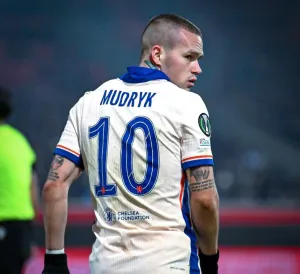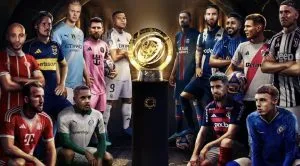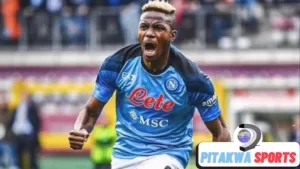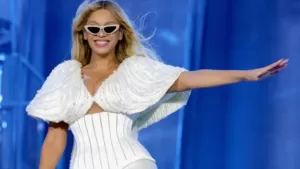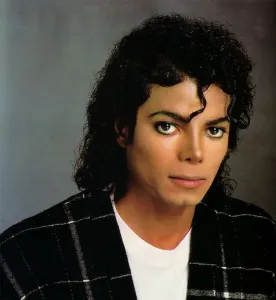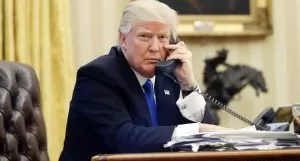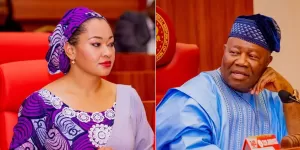Alejandro Garnacho’s Frustration: A Turning Point for Manchester United’s Young Star?

Alejandro Garnacho, Manchester United’s electrifying young winger, has publicly expressed his disappointment after being limited to just 20 minutes in the Europa League final against Tottenham Hotspur. In a candid post-match interview, the 20-year-old Argentine star voiced his frustration: “Until the final, I played every round helping the team… then the final arrives and I play 20 minutes?! I don’t know.” His comments, coupled with a cryptic reflection on his future—“The final, the season, the whole situation of the club… I will try to enjoy the summer and then we will see what happens”—have sparked speculation about his long-term commitment to the Red Devils.
A Breakthrough Star Under Scrutiny
Garnacho’s rise at Manchester United has been nothing short of meteoric. Since joining the club’s academy from Atlético Madrid in October 2020 for a £420,000 fee, the Madrid-born forward has dazzled fans with his flair, directness, and knack for delivering in big moments. His breakthrough came in the 2022/23 season, highlighted by a stunning injury-time winner against Fulham and an assist from his idol, Cristiano Ronaldo, in a Europa League match against Real Sociedad. Last season, he cemented his status as a key player, scoring the opening goal in Manchester United’s 2-1 FA Cup final victory over Manchester City on May 25, 2024—a historic moment as he and teammate Kobbie Mainoo became the first teenagers to score in an FA Cup final.
The 2024/25 season, however, has been a mixed bag for Garnacho. Under new manager Ruben Amorim, who took over in November 2024, Garnacho has been a near-ever-present figure, missing only one of United’s last 100 matches and starting 74. His versatility has seen him transition from a traditional winger to a No. 10 role in Amorim’s system, which emphasizes patient build-up play over end-to-end action. Notable contributions include a goal and two assists in a 7-0 EFL Cup rout of Barnsley and a goal in the FA Community Shield against Manchester City, despite United’s loss in the penalty shootout. Yet, his goal-scoring form has dipped, with a reported three-month drought earlier in the season drawing criticism from fans and pundits alike.
The Europa League Final Snub
Garnacho’s frustration stems from being named a substitute for the Europa League final, a decision by Amorim that raised eyebrows among fans and analysts. Hours before the match, Garnacho posted an Instagram memory of his FA Cup final goal against Manchester City, a move some interpreted as a subtle jab at the prospect of being benched. Amorim opted to start Mason Mount and Amad Diallo in attack alongside Rasmus Højlund, citing Mount’s ability to provide “a different balance” to the team. Garnacho, who entered the game in the 71st minute, was visibly dejected, with reports describing him as “cutting a frustrated figure” at Bilbao’s San Mamés stadium.
His brother’s outspoken reaction on social media further amplified the controversy, slamming Amorim’s decision to prioritize Mount over the young Argentine. Garnacho’s own comments post-match echoed this sentiment, highlighting his consistent contributions in earlier rounds of the competition. The Europa League final, a high-stakes clash with Champions League qualification on the line, was a chance for United to salvage a disappointing domestic season—both United and Tottenham sat 16th and 17th in the Premier League, respectively. Being sidelined for such a pivotal moment clearly stung the young star.
A Club in Transition
Garnacho’s remarks about “the whole situation of the club” point to broader challenges at Manchester United. The 2024/25 season has been turbulent, with the team struggling in the Premier League and navigating a managerial transition from Erik ten Hag to Amorim. Last summer, United faced Profit and Sustainability Rules (PSR) constraints, leading to speculation that all players except Garnacho, Mainoo, and Højlund were available for transfer—a status that was quietly lifted before the January 2025 window. This shift fueled rumors of Garnacho’s potential departure, with clubs like Atlético Madrid and Napoli reportedly interested.
Amorim’s arrival brought a tactical overhaul, and Garnacho has had to adapt to a new role. While he’s shown flashes of brilliance—such as setting up Joshua Zirkzee against Real Sociedad and scoring at Newcastle—his fit in Amorim’s system has been questioned. Critics have pointed to moments of frustration, like his yellow card for dissent in a loss to Nottingham Forest, as evidence of an “awkward fit.” Off the pitch, Garnacho’s attitude has also come under scrutiny. After storming down the tunnel following a substitution against Ipswich, he was instructed by Amorim to fund a team dinner as a light-hearted consequence, though the incident raised questions about his maturity.
What’s Next for Garnacho?
Garnacho’s cryptic comment about enjoying the summer and seeing “what happens” has fueled speculation about his future. Despite earlier affirming his happiness at United in May 2025, transfer rumors persist, with reports linking him to a potential swap deal for Wolves’ Matheus Cunha. His contract, which runs until June 2028, gives United leverage, but his market value of €45 million and interest from top clubs could tempt a sale if tensions with Amorim persist.
On the international stage, Garnacho’s trajectory has also hit a snag. After winning the Copa América with Argentina in 2024, he was omitted from recent World Cup qualifiers, a sign that his club form hasn’t gone unnoticed. Yet, his confidence and direct style remain his calling card. In a November 2024 interview with United Review, he emphasized his daring approach: “My game is all about being daring and direct.”
A Critical Juncture
At 20, Garnacho stands at a crossroads. His talent is undeniable—his radar map highlights his prowess as a ball carrier and 1v1 dribbler, drawing comparisons to Jack Grealish for his ability to hold up play in tight spaces. But consistency and adaptation to Amorim’s system will be key to reclaiming his status as United’s “future flagbearer.” The Europa League final snub may serve as a wake-up call or deepen his frustration, depending on how the club and player navigate the summer.
For Manchester United, Garnacho’s situation is a microcosm of their broader challenges: balancing youth development with immediate results, all while managing a squad in flux. Amorim’s defense of Garnacho after the Forest defeat—“He’s trying. Sometimes you have one day that you are not that good”—suggests belief in his potential, but patience may wear thin if results don’t improve.
As Garnacho heads into the summer, his next steps will depend on whether he and United can align their ambitions. For now, his comments reflect a young player grappling with high expectations, a changing role, and a club searching for stability. Whether he emerges as United’s cornerstone or seeks a fresh start elsewhere, one thing is clear: Alejandro Garnacho’s story at Old Trafford is far from over.
